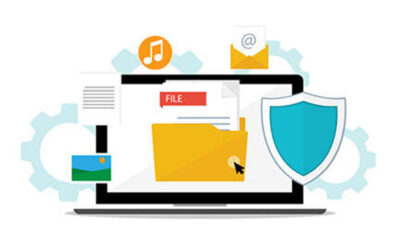When it comes to Internet threats, ransomware is the one that causes the most fear, especially for small and medium-sized businesses, as it should. According to the Cisco 2017 Annual Cybersecurity Report, ransomware is growing at a yearly rate of 350%. It’s time to make sure that you’re doing what you can to stop your business from becoming another ransomware statistic. Here’s five very good tips that will help you avoid becoming a victim of the next big ransomware attack!
- The First Line of Defense: You and your employees are the first line of defense against ransomware – and all malware, really. Educating yourself and your employees on the dangers and best practices to keep yourself, your data and your network safe against ransomware is honestly the best way to protect your business from a cyber threat. Keep yourself apprised of the best ways to prevent victimization.
- Whatever You Do… DON’T PAY THE RANSOM: You might have heard this before. It’s something that nearly everyone discussing ransomware says or writes about at some point. Paying ransom is no guarantee that you’re going to get your data back. In fact, the first payment is often a gateway to increasing demands and your data is still gone. Don’t Pay the Ransom! Instead of paying the criminals who have hijacked your data – contact your IT service provider and let them know what is going on.
- Backing Up Data on a Regular Basis: Regularly backing up data is the most effective way to prevent losing your data from ransomware. In the event that a ransomware attack does find its way onto your network, you have a copy of that network and data backed up in its entirety from just a few minutes before. Making sure that a copy of that backup is not stored on the infected network or lost to hackers is another key part of this.
- Keep Security Software and Patches Up-to-Date: New ransomware is always being introduced. New variants of malware are always being created, which threaten your network. Luckily, your operating system and software are always working overtime to come up with ways to keep your data and network secure. Updating your security software and paying attention to patches is a great way to make sure that you’re protected when ransomware strikes.
- Beware of Email: One of the primary methods of ransomware transmission and infection is email. Users should be cautious of any email that is unsolicited or unexpected, particularly if there is a link or attachment.
For Microsoft Windows users, there is a lot of good information about ransomware contained on the Ransomware FAQ that is regularly updated in the Windows Defender Security Intelligence (WDSI) database of threats to Windows computers. That is just for starters – for those of you who want to make sure they’re doing everything possible to reduce their chance of contracting ransomware, reach out our security experts today at (508) 453-4700.
It’s estimated that ransomware attacks will cost businesses $5 billion in 2017 and that number only includes those who pay ransom. Imagine if everyone who was attacked paid their ransom. Are you familiar with these five ransomware tips? Is there anything else you have found to be effective? Let us know in the comments below.



